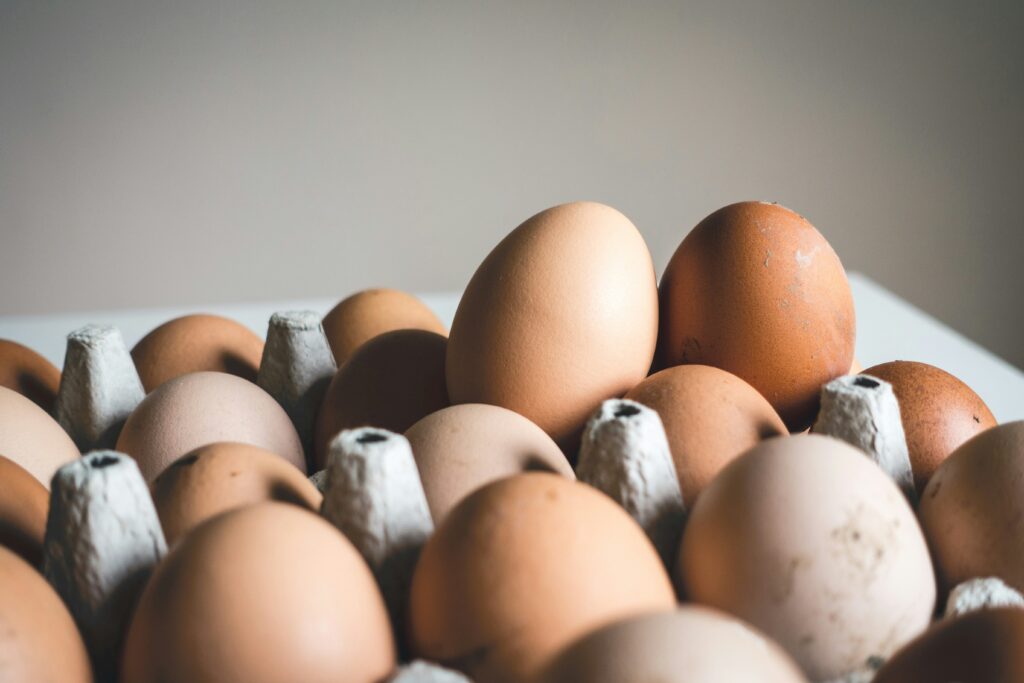This vitamin also has a significant impact on gene expression, cell signaling, and keeping skin, hair, and neuro function healthy. Biotin is widely spread in different food sources and can be produced by the body. There is still a slight chance of its deficiency happening, along with clinical symptoms emerging. Supplementation of biotin is becoming more and more favorable. It especially favored in the beauty and wellness sector despite many of its publicized uses lacking that strong scientific basis.
Biotin has multiple vital functions in the body. It is contributing to the molecular level, where it is a necessity for the activity of several enzymes called carboxylases. These enzymes play a part in several metabolic pathways, like gluconeogenesis. It is the process of producing glucose from non-carbohydrate sources, fatty acid synthesis, and amino acid catabolism. These processes are essential to energy generation and biosynthesis of cellular building blocks.
Biotin has been mostly promoted as a supplement for the improvement of hair, skin, and nails. People often use biotin supplements to make their hair thicker, to stop hair from falling out, and to strengthen weak nails. However, the clinical evidence still lacks consistency. Thus small-scale studies, as well as case reports are the available sources of information. These papers report lots of success, but only well-controlled human trials can make these claims valid.
Biotin has a very important role in pregnancy and lactation. This is the period when women require more nutrients. Inadequate intake of biotin during pregnancy is a known issue. It is considered to have an effect on embryonic development, although studies to determine the long-term effects are still needed. For this reason, it is significant to ensure that the necessary levels are achieved. However, one has to be very keen on the guidance of a professional during the supplementation period.
A deficiency of biotin can be treated by supplementation in the cases of the deficiency being a confirmed one. The deficiency can be of an inherited nature (e.g., biotinidase deficiency) or acquired. It is due to factors such as the use of long-term antibiotics, consumption of raw egg whites in significant quantities, or the use of total parenteral nutrition (TPN) formula for a long time. Re-supplementing levels of biotin can resolve symptoms ranging from skin rash to hair loss. Sometimes even disturbance of the nervous system can be mended.
Biotin is likely to improve blood sugar control in people with type 2 diabetes as shown in early research. Biotin appears to lower glucose in the blood and may help modulate insulin secretion or sensitivity. Nonetheless, these exciting studies only can be confirmed through large-scale clinical trials. Until then doctors can't recommend biotin as an effective therapy for diabetes.
Biotin is vital for a strong nervous system. It is seen through the production of neurotransmitters as well as the transmission of nerve signals. A few users have said that their mental cognition increased and their mood was more stable when they began to take biotin. Still, these assertions remain mostly hearsay. Still, neurological symptoms quite often point to severe biotin deficiency, which is the reason why the brain's health matters.
According to a round of research, biotin plays a role in the immune system. It regulates the production of cytokines and maintains the barrier function of skin and mucous membranes. The latter (skin and mucous membranes) is the body's main armor against any pathogens that may attack it. However, this is not a part of the subject, usually, but for sure, it is a field of tbd research in the potential direction of the same.

Although vitamin b7 deficiency is very rare in people who have a diet with a wide range of food, it is still possible under some conditions. At first, symptoms can be unnoticeable, but if nothing is done about them, they will become stronger. People who have problems with enzymes that are genetic, drink alcohol chronically, or are using anticonvulsants are the most susceptible to having the deficiency.
The first that can happen is that the hair on the head starts to get thin and fall out, and if no action is taken, then alopecia is the next step that comes. Eczema, especially one that develops around the mouth, nose, and eyes, may occur as scaly red patches. Depression, fatigue, hallucination, and paresthesia (the tingling and numb sensation in the limbs) are the symptoms that are related to the neuromuscular system, or nervous system. In the case of infants, abnormalities in the development of the infant, hypotonia, and seizures are, in most cases, the symptoms of the deficit. If these conditions are recognized as they occur, and the appropriate treatment is given without any delay, they can be cured completely.
Whenever biotin is misused, the inevitable result is always a toxic reaction. However, an accumulation of a lot of vitamin b7 in the body does not cause any harmful effects as it is simply disposed of in the urine. However, cases of an overdose are always accompanied by a necessary treatment to re-enable the body to function normally. Overuse most of the time comes from those who want to look younger and to improve their skin, hair, and nails, this usually happens by taking supplements over a long period of time. During it, some of the biological tests are affected, particularly the ones that happen to utilize the biotin-based immunoassays. The greatest challenge is the interference.

Biotin is one of the vitamins with the least drug-nutrient interactions. Nevertheless, some drugs can interfere with the metabolism of biotin. Using antiepileptic drugs such as carbamazepine or phenytoin for a long period of time may lead to biotin deficiency. It happens because of the increase of its breakdown or competition for its absorption. The same is true for wide-spectrum antibiotics that can disturb gut bacteria that produce biotin. Hence, the person may have a biotin deficiency.
One more interaction of paramount significance is with the lab tests. The increased levels of biotin in the bloodstream significantly distort the results of many laboratory assays, especially used for hormone and cardiac marker measurement. Patients who are consuming 5 mg or more of biotin per day are of the main concern on this subject and have been advised by the FDA about this issue.
Healthcare workers must ask whether the patients have been taking biotin supplements prior to lab testing and prescribing medications that decrease biotin levels. To avoid possible interaction in the future, both directions should be followed.
The Recommended Dietary Allowance (RDA) for biotin is 30 micrograms (mcg) per day for adults. Pregnant and breastfeeding women have a slightly higher demand for this vitamin which is 35 mcg. Such amounts are normally available from the diet only. However, the pharmaceutical market offers a wide variety of doses of supplements, from 1,000 to even 10,000 micrograms, or sometimes even more.
There is a high probability of no side effects with large doses. However, evidence is still lacking to prove the benefits of megadosing for individuals in good health. The exceptions to this general statement involve certain diseases such as biotinidase deficiency where the indication of higher therapeutic doses is justifiable and such doses are usually dispensed under the control of a physician.
Biotin is found in a huge variety of animal products, the richest sources being the organ meats like liver and kidney. Eggs, especially the yolk, are another food that is very high in vitamins. However, the consumption of raw egg whites should be avoided. It is because of avidin, a protein that binds biotin and this will inhibit its absorption. Boiling or frying destroys avidin and results in the cooked content of eggs being more easily absorbed. Additionally, dairy products such as milk and cheese as well as fish like salmon and mackerel provide the body with some biotin.
A variety of plant foods are among good sources of biotin in the diet. Legumes e.g. peanuts, soybeans, and lentils are ideal for that purpose. Similar to the aforementioned, grains supply some biotin. However, their functions are not limited to biotin provision as they are also a good source of healthy dietary fats. Vegetables not behind in this matter are sweet potatoes, spinach, kale, and broccoli. Moreover, avocados and mushrooms can not only add unique flavors but also deliver useful substances including biotin.
Biotin-enriched breakfast cereals, energy bars, and meal replacers are some of the products that are easily available in the marketplace. These can help one to replenish their biotin intake. Also, nutritional yeast, usually used by vegetarians, might contain biotin naturally or have been prepared with the vitamin as a supplement. You can find supplements that come in different types such as standard pills, capsules, and flavored candies, and are commonly advertised to be beauty boosters.
Did you know that even if there is a massive number of users of supplements, only a small percentage of the population actually needs them?

The use of biotin products (supplements) is safe for the majority of people. Still, you should not treat it as a popular trend and take it thoughtlessly. Expectant mothers who are breastfeeding, have proven allergies to certain medications. They may suffer from drugs that cause a decrease in the levels of biotin, or are having blood tests for other purposes are all examples of those who would exercise great care. Health issues caused by incorrect test results are the result of biotin as a superhero that comes to the rescue for misinterpretation of the test results. The failure to identify the cause being myocardial infarction and thyroid disorders.
Make sure you tell your doctor if you are taking any supplements, especially before you have a blood test. Although biotin from food is not harmful, taking large amounts of the supplement can have negative effects that are not yet fully understood.
The most eligible group for biotin intake as a form of supplementation is individuals who have been diagnosed with a deficiency, either through inborn errors of metabolism such as biotinidase deficiency or due to other reasons such as alcohol addiction, long-term use of antibiotics, thus, sustaining a suppressing diet leading to a restricted dietary pattern. People with unexplained hair loss or weak nails, for example, could still consider using a trial dose of biotin. However, they should bear in mind that the effects might/ might not be exactly the result of the vitamin.
Women who are pregnant or lactating are recommended to search for foods that are rich in biotin and in such a way as to get the extra biotin they require through their meals, and only if the dietary intake is not enough then supplements can be taken as a next choice. Here are a few more examples. Anyone from taking drugs for epilepsy to those who are using antibiotics that can reduce the level of biotin should consult a physician for advice on taking vitamins. In addition, the sportsmen, the elderly, and the people who have malabsorption syndromes/adults who have a problem with taking in food may be in great need of this vitamin.
Even as technology plays a larger role in the field of scientific research on micronutrients, biotin continues to capture growing interest in the realm of clinical and consumer studies. Although for many years biotin was considered a Vitamin “for the rare few” like a quirky hobby of a great personality, the current wave of research has begun to turn the tide around.
Scientists are delving into the details of biotin’s interaction with the genes of the cells, especially the histone biotinylation process, which might hinder the aging process, make the immune system stronger, and potentially might also be useful in the treatment of cancer. Biotin is also attracting research attention due to its connection with the development of metabolic syndrome and the ability to be a useful adjunctive nutrient in the management of conditions such as insulin resistance or cardiovascular risk profiles.
Table of Contents